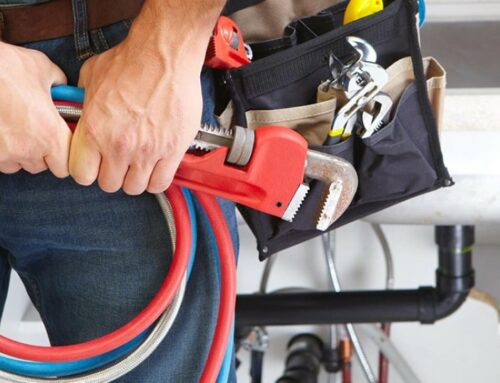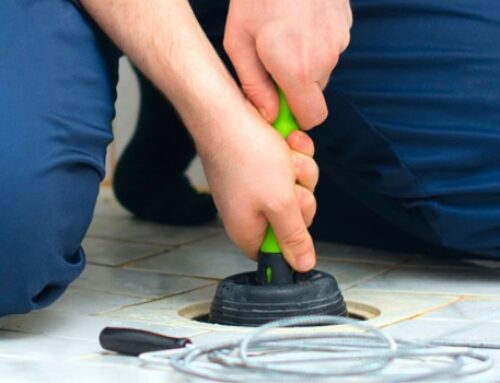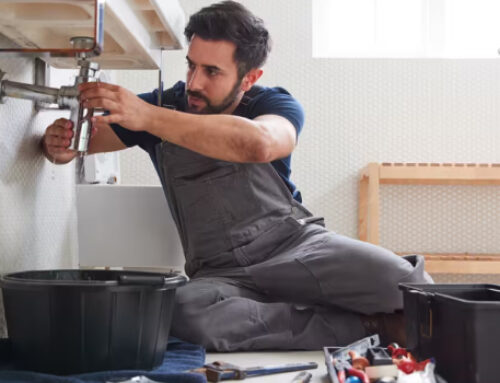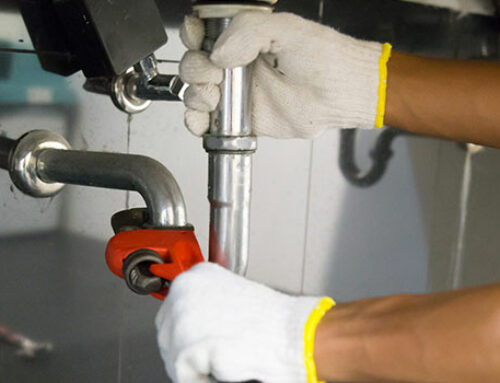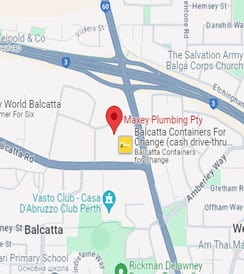When it comes to the veins and arteries of your Perth property, understanding the difference between plumbing and piping is crucial.
Just like the human body needs both to function correctly, your home relies on these systems to maintain its health and efficiency.
To level up your knowledge, this article will cover:
- A brief overview of plumbing and piping
- A quick comparison of plumbing vs. piping
- Tips for tailoring your choice to your needs
Whether you’re a homeowner looking to understand more about your property’s inner workings or a business concerned with maintaining your infrastructure, this read will equip you with the knowledge to navigate the complexities of both systems.
MAXEY PLUMBING TIPS:
|
Plumbing vs. Piping: The Basics
Plumbing involves the fixtures and systems for distributing potable water and removing waterborne wastes.
This network ensures your taps flow with fresh water and your drains whisk away the unwanted, playing a critical role in the sanitation and comfort of your home or business.
Piping is a broader term that covers the transportation of liquids, gases, and sometimes solids, across a wide range of applications.
While it includes the pipes in your plumbing system, it also extends to the gas lines, industrial fluid transfers, and even the heating and cooling systems that keep your Perth property comfortable year-round.
Plumbing
Why you need it:
- Health and Hygiene: These systems are indispensable for ensuring the delivery of clean water and the efficient disposal of waste, directly impacting public health and personal hygiene.
- Property Value: A well-maintained system can significantly enhance the value of your property. It’s a crucial aspect that potential buyers consider, making it a wise investment for homeowners.
- Convenience and Comfort: Modern systems are designed for convenience, providing instant access to hot and cold water, thereby contributing to the overall comfort of your home or business.
What to be aware of:
- Maintenance Costs: These systems require regular maintenance to prevent leaks, blockages, and other issues that can lead to costly repairs if neglected.
- Complex Repairs: When things go wrong, the repairs can be complex and require professional intervention, which can be inconvenient and sometimes expensive.
- Water Efficiency Concerns: Inefficient plumbing can lead to significant water wastage, which is not only bad for the environment but can also increase your water bills.
Piping
Why you need it:
- Versatility: Piping systems cater to a wide range of applications beyond water supply and waste disposal, including gas, heating, and cooling, making them a versatile component of any infrastructure.
- Durability: Modern piping materials are designed for longevity and can handle a variety of substances under different conditions, reducing the need for frequent replacements.
- Energy Efficiency: Properly installed and maintained piping can contribute to energy efficiency, especially in heating and cooling systems, by minimising loss and optimising flow.
What to be aware of:
- Initial Investment: The cost of installing a comprehensive piping system, especially for industrial applications, can be high due to the materials and labour involved.
- Regulatory Compliance: Piping systems must comply with strict regulations and standards, which can add complexity and cost to their installation and maintenance.
- Risk of Damage: Piping systems are susceptible to damage from environmental factors, physical impact, or material degradation over time, potentially leading to leaks, bursts, and other failures.
Comparing Plumbing vs. Piping
When deciding between plumbing vs. piping for your Perth property, several key factors come into play.
Efficiency
- Plumbing: Efficiency revolves around water conservation and minimising waste. Low-flow fixtures and efficient water heaters are examples where the technology aims to reduce water and energy use.
- Piping: In the context of piping, efficiency comes down to the optimal transport of fluids or gases with minimal energy loss. This includes insulated pipes for thermal systems and corrosion-resistant materials for industrial applications, ensuring that resources are used effectively.
Cost
- Plumbing: The cost primarily involves installation and maintenance. While upfront costs can be significant, especially for high-quality materials and fixtures, the long-term savings on water and energy bills can offset these expenses.
- Piping: Piping costs vary widely based on the application. Industrial and specialised piping systems can require a higher initial investment but may offer savings in terms of durability and reduced maintenance needs.
Durability and Lifespan
- Plumbing: Modern materials such as copper, PEX, and PVC offer significant durability, with life spans ranging from 25 to over 50 years, depending on the material and maintenance.
- Piping: The durability of piping systems also depends on the material and application. For instance, steel pipes used in industrial settings are designed to withstand high pressures and temperatures, often outlasting residential plumbing systems.
Aesthetics
- Plumbing: Aesthetics focuses on the visible parts of the system, such as fixtures and finishes. The market offers a wide range of styles and designs to complement any interior design scheme.
- Piping: While traditionally not a major concern, the aesthetics of exposed piping can be considered in modern and industrial design trends, with materials and layouts chosen for visual impact as well as functionality.
Environmental Impact
- Plumbing: It directly impacts water conservation efforts. Eco-friendly solutions, such as rainwater harvesting and greywater recycling systems, contribute positively to reducing a property’s environmental footprint.
- Piping: The environmental impact of piping systems is broader, encompassing energy efficiency in HVAC systems and the reduction of harmful emissions in gas lines. The choice of materials and system design plays a crucial role in minimising ecological impact.
Tailoring Your Choice to Your Needs
Choosing between plumbing vs. piping hinges on understanding the specific requirements of different types of installations.
Whether you’re outfitting a new home, upgrading a commercial facility, or simply maintaining your current systems, aligning your choice with your situation is key to ensuring efficiency, reliability, and cost-effectiveness.
Residential Installations
Residential Plumbing Installation:
The focus here is on water delivery and waste removal, including fixtures like sinks, toilets, and showers, as well as outdoor irrigation systems.
The solutions that prioritise water efficiency and durability are ideal, given Perth’s climate and water scarcity issues.
Residential Piping Installation:
Piping in a residential context often relates to gas lines for heating and cooking, as well as systems for air conditioning and heating.
High efficiency and safety are paramount, making materials and designs that minimise energy loss and reduce risks essential.
Commercial Installations
Commercial Plumbing Installation:
Commercial properties, especially those in the hospitality, healthcare, and retail sectors, require robust systems that can handle high demand and adhere to strict health regulations.
Systems designed for easy maintenance and water efficiency can offer significant advantages.
Commercial Piping Installation:
In commercial settings, piping extends to include large-scale HVAC systems, industrial fluid transfers, and specialised gas lines.
The focus here is on durability and compliance with safety and environmental regulations, requiring more complex and often custom-designed piping solutions.
How to Choose the Best Commercial Plumber in Perth
Industrial Installations
Industrial Plumbing Installations:
Industrial plumbing still focuses on sanitation and water delivery but on a scale and complexity that surpasses residential needs.
Solutions often include heavy-duty pipes and fixtures designed for longevity and resistance to harsh conditions.
Industrial Piping Installation:
Piping is a critical component in industrial installations, where it is used for a wide range of applications, from chemical transport to waste management.
These systems often require materials and designs that can withstand extreme temperatures, pressures, and corrosive substances.
Final Thoughts on the ‘Plumbing vs. Piping’ Debate
Let’s recap what we’ve learned so far…
Plumbing brings water to your taps and carries waste away, a fundamental aspect of daily life.
Piping has a broader scope and serves as the circulatory system for water, gases and other fluids while powering everything from heating and cooling to industrial processes.
The decision between plumbing vs piping hinges on the specific requirements of your project.
For residential property owners, focusing on plumbing upgrades or installations that improve water efficiency and hygiene might be most useful.
Commercial and industrial projects may prioritise piping solutions that cater to energy efficiency, safety, and operational demands.
Whether upgrading your home’s plumbing or designing an industrial piping system, informed decision-making will ensure that your investment is both effective and enduring.
Ready to Take the Next Step? Connect with Maxey Plumbing Today
Whether you’re contemplating a residential upgrade, a commercial installation, or an industrial overhaul, the choices you make today will shape your property’s functionality tomorrow.
The team at Maxey Plumbing is ready to guide you through these crucial decisions.
With a wealth of experience in both systems, our team is equipped to offer personalised advice that aligns with your specific needs and goals.
We understand the intricacies of Perth’s regulations and environmental conditions, ensuring that your project not only meets but exceeds standards.
Our commitment to quality, efficiency, and customer satisfaction makes us the ideal partner for your next project.
Reach out to us to explore your options and find solutions tailored to your unique requirements.
Or, request a 100% obligation-free quote to support your next project.


